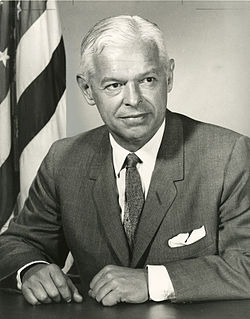A Quote by Paul Nitze
We slow the progress of science today for all sorts of ethical reasons. Biomedicine could advance much faster if we abolished our rules on human experimentation in clinical trials, as Nazi researchers did.
Related Quotes
In every section of the entire area where the word science may properly be applied, the limiting factor is a human one. We shall have rapid or slow advance in this direction or in that depending on the number of really first-class men who are engaged in the work in question. ... So in the last analysis, the future of science in this country will be determined by our basic educational policy.
I believe, indeed, that overemphasis on the purely intellectual attitude, often directed solely to the practical and factual, in our education, has led directly to the impairment of ethical values. I am not thinking so much of the dangers with which technical progress has directly confronted mankind, as of the stifling of mutual human considerations by a 'matter-of-fact' habit of thought which has come to lie like a killing frost upon human relations. Without 'ethical culture' there is no salvation for humanity.
In trying to develop an impartial, expansive ethic we are trying to get ethical systems to do something which they did not evolve in order to do. This doesn't mean that it can't be done or that we shouldn't try to expand the reach of our ethical frameworks, only that there are reasons to be skeptical about its success.
Ever since the beginning of modern science, the best minds have recognized that "the range of acknowledged ignorance will grow with the advance of science." Unfortunately, the popular effect of this scientific advance has been a belief, seemingly shared by many scientists, that the range of our ignorance is steadily diminishing and that we can therefore aim at more comprehensive and deliberate control of all human activities. It is for this reason that those intoxicated by the advance of knowledge so often become the enemies of freedom.
The history of science, like the history of all human ideas, is a history of irresponsible dreams, of obstinacy, and of error. But science is one of the very few human activities-perhaps the only one-in which errors are systematically criticized and fairly often, in time, corrected. This is why we can say that, in science, we often learn from our mistakes, and why we can speak clearly and sensibly about making progress there. In most other fields of human endeavour there is change, but rarely progress ... And in most fields we do not even know how to evaluate change.
The progress of science is tremendously disorderly, and the motivations that lead to this progress are tremendously varied, and the reasons why scientists go into science, the personal motivations, are tremendously varied. I have said ... that science is a haven for freaks, that people go into science because they are misfits, and that it is a sheltered place where they can spin their own yarn and have recognition, be tolerated and happy, and have approval for it.
The arc of history is longer than human vision. It bends. We abolished slavery, we granted universal suffrage. We have done hard things before. And every time it took a terrible fight between people who could not imagine changing the rules, and those who said, 'We already did. We have made the world new.' The hardest part will be to convince yourself of the possibilities, and hang on.
This isn't animal experimentation, where you an imagine some proportionate good at the other end of the suffering. This is what we feel like eating. Tell me something: Why is taste, the crudest of our sense, exempted from the ethical rules that govern our other sense? If you stop and think about it, it's crazy. Why doesn't a horny person has as strong a claim to raping an animal as a hungry one does to killing and eating it?






































